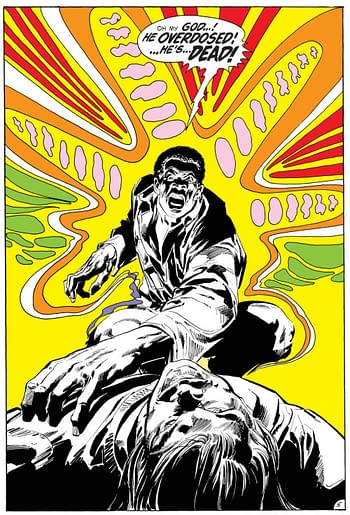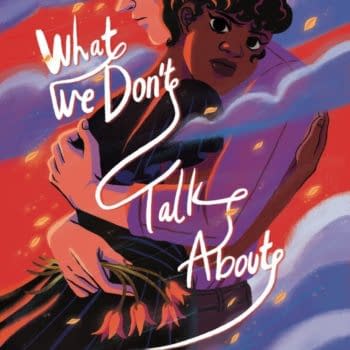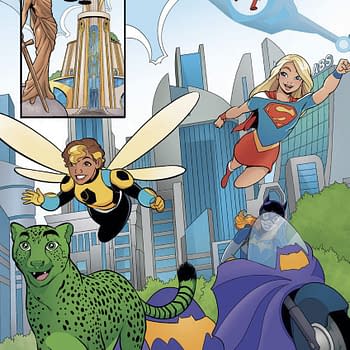Posted in: Comics | Tagged: Comics, comics & complication, drugs
Comics & Complication: Let's Teach Kids About How Fun Drugs Are?
Comics have long been on the front lines of social issues, with Stan Lee eschewing the Comics Code Authority by depicting the slippery slope of drug use to Super-Man going toe to toe with the Ku Klux Klan; there have been few times when anything mainstream has gone awry in public discourse. More on the nose issues such as smoking cigarettes or rolling joints have a long and complicated history with the comic book medium, with representation regarding their use occurring on both sides of the political fence.

In the 1950's and 1960's predominantly, the American Cancer Society released an issue called "Where There's Smoke…" where a young boy learns the dangers of tobacco from an expert on the matter. In fact, the use of drugs was so predominant and feared in the hippie movement that even more mainstream comics too note and decided to address the issue. As seen in the Amazing Spider-Man #98, Harry Osborn goes from a capable playboy to a paranoid and delusional mess as he meddles with the dark world of prescription pills. DC comics, not to be outdone, even teamed up with Ronald Reagan's War on Drugs in the 1980's to release an issue of The New Teen Titans written by none other than Marv Wolfman.

In the opposite corner of youth corruption were the comic books being used to advocate marijuana legalization and the fun times to be had by snorting cocaine. Titles such as Cocaine Comix (the "x" substituted in to be less "mainstream") and Dopin' Dan began their circulation on the independent and underground circuit as the pro-drug movement's answer to what they viewed as pro-establishment propaganda. This war to reach the children of America is nothing new to the comic book medium, but rarely seen is the unadulterated promotion of drug use by these publishers.

Even with the decriminalization of drugs being a political issue even now, these comics (albeit problematic), are still incredibly relevant to the current status quo. The importance of removing the stigma with drugs was something the hippie movement of the 1960's tried to push, but was ultimately unsuccessful as most don't advocate or appreciate the use of drugs being marketed to this nation's youth. Perhaps a more tactful approach would be for publishers to educate rather than advocate about the use of drugs to kids, regardless of what they believe, to at least realistically lay a foundation seeking to educate rather than preach.













